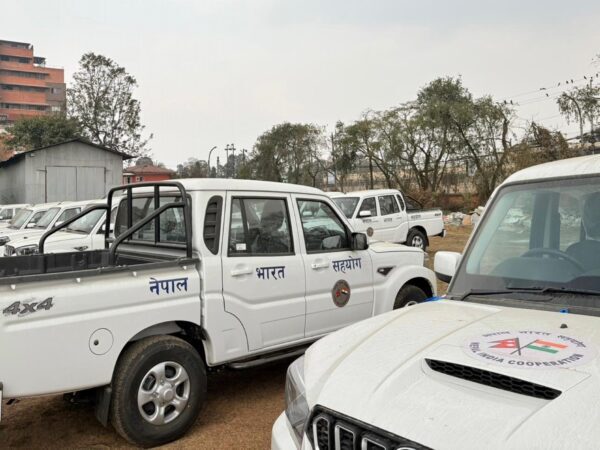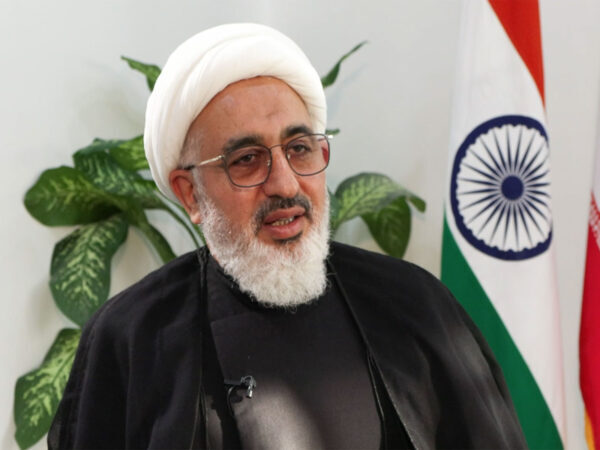
India, UK Expand Collaboration In Telecom, AI, Emerging Tech
Telecom Secretary Neeraj Mittal visited the United Kingdom to engage with the UK counterparts and explore opportunities for collaboration in next-generation telecommunications, artificial intelligence, and space technology, further strengthening Indo-UK ties in these critical areas.
The Secretary met with Chris Johnson, the National Scientific Adviser, and Dave Smith, the National Technology Adviser of the Department of Science, Innovation, and Technology (DSIT).
The discussions centred on emerging technologies and their applications in 5G, 6G, digital infrastructure security.
The telecom secretary also met with Geoff Huggins, Director of the Digital Directorate at the Government of Scotland, to discuss collaborative efforts in digital transformation through telecom, telecom security, and emerging telecom technologies.
The telecom secretary also visited one of the six Federated Telecom Hubs (FTH) in the UK, which specializes in Cloud and Distributed Computing (CHEDDAR).
This hub leads cutting-edge research in 6G distributed cloud, AI for 6G, green 6G, and advanced sensing technologies.
Furthermore, the Secretary met with Jean Innes, CEO of the Alan Turing Institute, to discuss potential collaborations in digital twins, AI for telecom security, ethical AI, and fostering an AI innovation and startup ecosystem.
Additionally, the Secretary visited Scotland’s 5G Centre at the University of Strathclyde and the 6G Research Centre at the University of Glasgow’s James Watt School of Engineering.
“These visits facilitated discussions on collaboration in 6G innovation, future sensing technologies, the exchange of technology such as the 5G stack, and student exchange programs to foster academic and industrial partnerships,” India’s Ministry of Communications said in a statement.
Building on the strong foundation of the UK-India Technology Security Initiative (TSI), where telecom remains a key priority, a roundtable discussion was convened with key UK stakeholders from DSIT, leading business entities such as BT and Ericsson, and innovation hubs and centres, including SONIC Labs, UK Telecom Labs, TITAN, among others, joined.
Representatives from the UK Space Agency, European Space Agency, Innovate UK, and the UK Technology Innovation Network (UKTIN) also participated, exploring avenues for mutual cooperation.
The roundtable was organized by the High Commission of India (HCI) in partnership with UKTIN.
Telecom secretary Neeraj Mittal highlighted India’s leadership in the telecom sector and its rapid advancements in next-generation network technologies.
Following the roundtable, a Memorandum of Understanding (MoU) was signed between SONIC Labs and the Centre for Development of Telematics (CDOT). The agreement focuses on Open RAN-related policy and technical matters, including 5G Open RAN and Artificial Intelligence in 4G/5G.
Other key areas of collaboration have been identified during the deliberations with various stakeholders in the telecom ecosystem of the UK:
Establishment of a Joint Centres of Excellence focusing on telecom cybersecurity, AI in telecom, and digital twins.
Collaborative initiatives with British telcos to leverage mobile phone data for infrastructure planning, building upon India’s success in using such data for metro route planning.
Joint contributions to ITU for the development of 6G standards (IMT 2030).
Mutual recognition of testing labs and the establishment of new testing facilities.
Collaboration on Digital Twins, including standardization frameworks, privacy-enhancing technologies, and cross-sectoral data applications.
Advancing quantum communication solutions and submarine sea cable security.
Promoting the Indigenous 4G/5G telecom stack developed by CDOT.
Collaboration on space technology communication (TN-NTN) between the UK and India’s Bharat 6G Alliance.
“This visit underscored the shared commitment of India and the UK to drive innovation in telecom and digital infrastructure, paving the way for enhanced collaboration in next-generation connectivity solutions. It also reflects India’s proactive approach to shaping global telecom policies, fostering AI-driven innovations, and strengthening international partnerships for a digitally inclusive future,” the Ministry of Communications statement said. (ANI)

Tendulkar Family Stuns In Traditional Outfits At Arjun’s Pre-Wedding Celebs

India Provides Large No. Of Vehicles As Nepal Heads To Landmark Polls After Gen Z Protests

US Embassies Instruct Americans To Leave Middle East Immediately As Tensions Escalate
